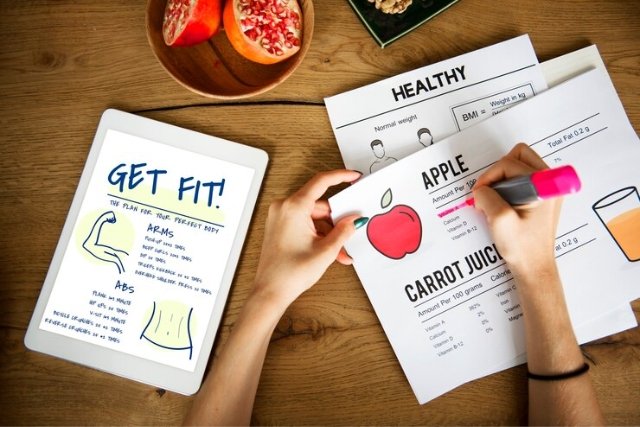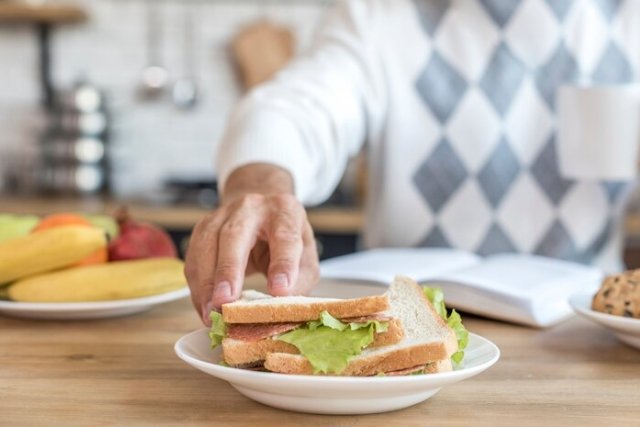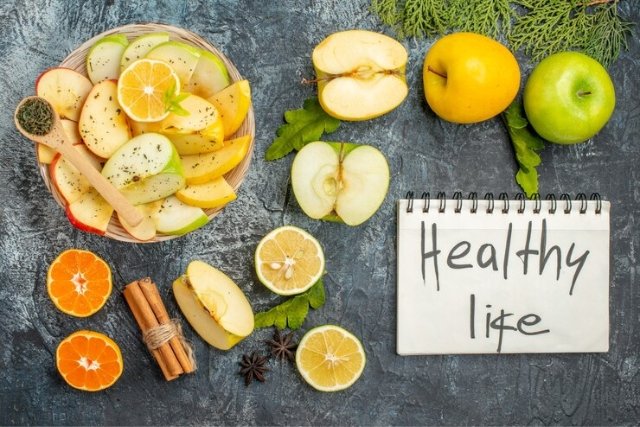For many years, the advice to “eat less and exercise more” has been an important part of nutrition. However, this approach often fails to provide long-term success for those interested in losing weight. The problem is that when you’re trying to lose weight, eating many unhealthy foods is easier than making small changes to your diet and exercise routine.
This indicates that many people find it difficult to lose weight because they need a strategy to reach their objectives. Let’s look at how we can lose weight with Healthy Food and what it takes to maintain our health. It would help if you adopted a balanced lifestyle, included nutrient-dense foods, and made long-lasting dietary changes to lose weight through healthy eating.
Tips to help you lose weight

Here are some suggestions for using a healthy diet to help you lose weight
1. Choose fibrous proteins instead of fatty ones:
Building muscle and maintaining organ function both depend on protein. When ingesting red meat, opt for extra-lean ground beef or lean steaks. Before cooking, remove the chicken’s skin.
● Steer clear of fatty deli meats like salami and bologna. Instead, go for roast beef or lean turkey.
● Beans, seeds, nuts, and soy provide a good source of protein for vegetarians. Legumes, such as lentils and beans, are a great source of protein and fiber.
● Consume dairy products low in fat, such as nonfat yogurt and low-fat cheeses, to get protein. About 11 grams of protein are included in a 150-gram serving of Greek yogurt. According to the study, twenty women who substituted high-protein yogurt snacks for low-protein snacks like crackers and chocolate each day consumed fewer calories and felt less hungry.
2. Consume more veggies and fruits

The natural sugars in fruit help you satisfy your sweet needs, while fresh veggies help your stomach fill up more quickly. Fiber from fruits and vegetables can help you feel fuller faster. Try incorporating any of these ideas into your diet to increase the amount of fruits and veggies you eat:
● Consume seasonal food and have fruit and vegetables as a snack or dessert. It could also be a wealthy dessert when You consume cherries in the late summer or apples in the fall. Dive some chopped veggies, such as celery, carrots, peppers, broccoli, or cauliflower, into hummus or a mild salad dressing.
● Make vegetables the main course. Add a few ounces of cooked chicken, fish, or nuts to a robust salad or stir-fry.
3. Eat less simple carbohydrates and more whole grains:
Whole-flour bread, whole-grain carbs, sweet potatoes, oats, and brown rice are excellent energy sources and nutrients. Whole grains provide the ideal all-around nourishment with the appropriate proportion of veggies and proteins.
● Simple carbohydrates include refined flour, white sugar, and white bread. You get energy from this rapidly, but it ends abruptly. It quickly develops into fat.
● For pancakes or other baked items, use oat or whole wheat flour instead of flour. You may need more leavening ingredients, such as yeast or baking powder. Try making a pilaf with barley, brown rice, or wild rice in place of rice in your soup.
● Consume only carbohydrates that are found naturally rather than ones that are manufactured. Clear processed foods like white bread, crackers, or semolina spaghetti. Processed sweets like candy bars and sugary veggies should also be avoided.
4. Cut the salt from your diet.

Consuming too much sodium stimulates your body to retain water, which might make you feel bloated and gain more body fat. Less sodium in your diet is an easy approach to shed some pounds because, fortunately, you’ll sweat that weight out rapidly.
● Try adding fresh salsa, cajun spices, or Chilli flakes are added to your food in place of salt.
● If you avoid salt for a while and allow your taste buds to adjust, eventually, unsalted items will taste considerably
saltier.
5. Avoid sweetened drinks
Beverages sweetened, either naturally or chemically, add a lot of empty calories and little nutritional benefit to your diet. Consume no fruit juice or other drinks with added sugar. You won’t lose weight by eating fewer natural sugars because they will raise your daily calorie consumption. If you decide to drink juice, take at most 4 ounces (1/2 cup) each day. Drink calorie-free, unsweetened liquids throughout the day instead of ones that have been sweetened.
Among the drinks to stay away from are:
6. Control your portions

Eating excessively large amounts is one reason you may have put on weight. You must consume less quantities if you want to start losing weight. You can keep losing weight by consuming fewer amounts of some of your favorite meals.
7. How many calories should one consume a day to lose weight
It takes more than just weight to lose weight. You will find it easier to consume the proper quantity of food and exercise the right amount to shed a few pounds if you are more conscious of the calories in your food. Grab your food notebook and research each item separately. Compile your daily total of calories and keep a running tab.
● Next, find out how many calories a person with your age, height, weight, and energy level needs each day.
● Roughly 170 calories are added to your total. According to recent studies, we consume a little more than we can monitor daily.
8. consume at least 2 liters (2.1 U.S. quarts) of water daily.

Water does two things for you: it hydrates your body and puts a specific amount of calorie-free liquid in your stomach. The Institute of Medicine states that a man’s appropriate intake (AI) should be about 3 liters (0.8 US gal) or about 13 cups of total daily beverages. The recommended daily intake for women is 2.2 liters or roughly 9 cups of liquids.
● Water consumption, particularly in older adults, can help people consume fewer calories overall, especially when done roughly 30 minutes before meals.
● Experts discovered that over twelve weeks, individuals who consumed half a liter of water before food lost 44% more body fat than those who didn’t.
1. Exercising

Exercise-induced weight loss involves a balanced diet, consistent physical activity, and lifestyle modifications. Here are some exercises to help you effectively reduce weight.
Conclusion:
In conclusion, while it may take some effort to maintain a healthy lifestyle, it’s possible with a little planning and commitment. Remember, it takes time to see results and keep going. Be patient and persistent. Stick to your healthy habits and eventually reach your desired outcome.


One thought on “How Can we Reduce Weight With Healthy Food”